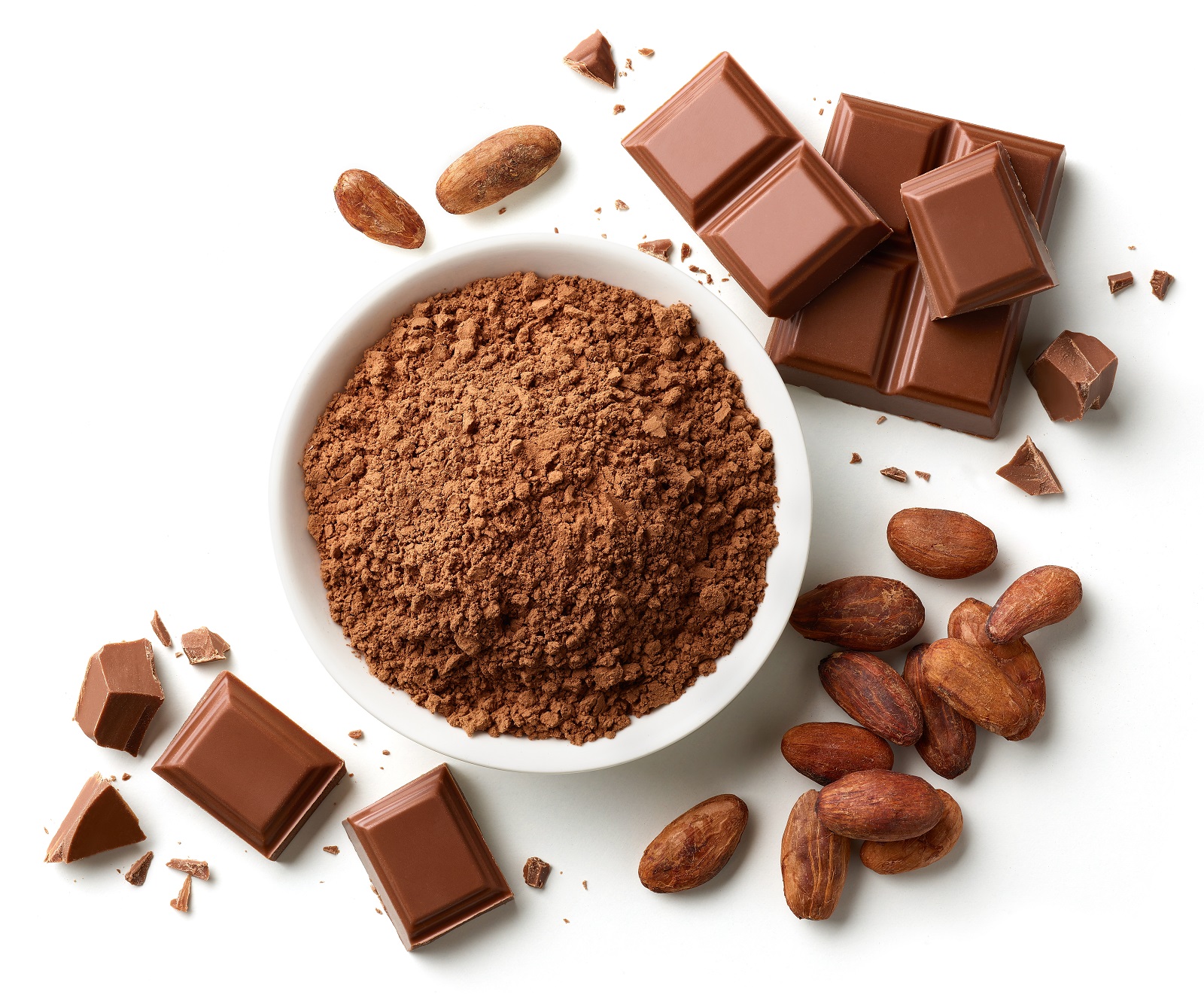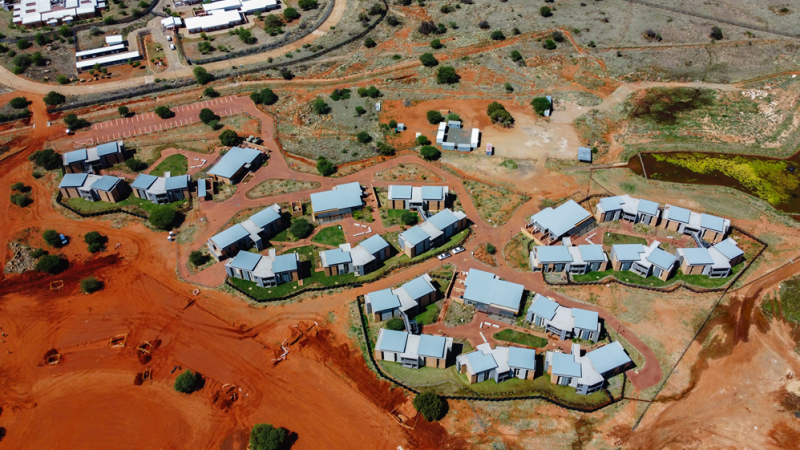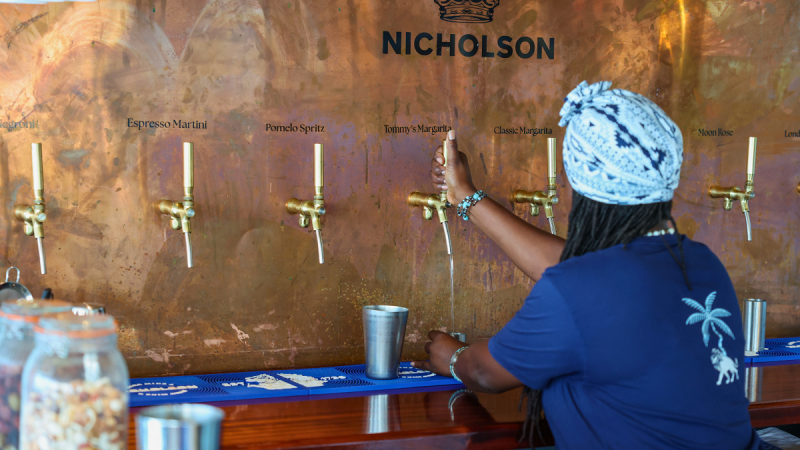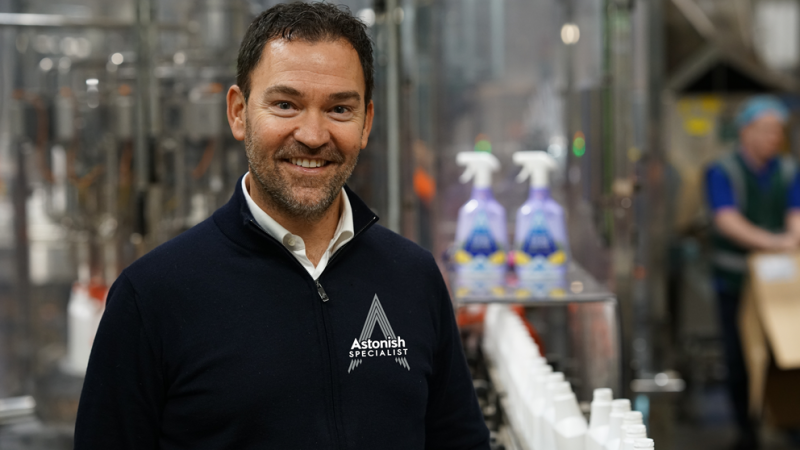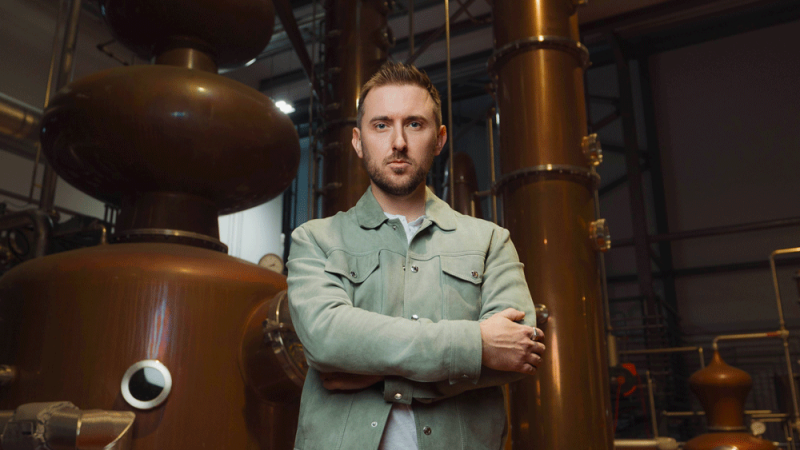With a proudly Ghanaian culture and product, Niche Cocoa is making an impact on the international chocolate market.
In the global chocolate industry, there is one thing that makes Ghana stand out ahead of all others- its cocoa beans.
“It’s about the fruity nature of the cocoa bean, the strong cocoa flavour,” insists Lloyd Ashiley, Managing Director of indigenous Ghanaian chocolate company, Niche Cocoa Industry Limited. “It’s not just any bean, it has a strong cocoa flavour.”
Niche Cocoa is deeply familiar with Ghana’s cocoa beans, having worked since 2011 to process this raw material into finished products, including cocoa paste, cocoa butter, cocoa cake, and cocoa powder. In 2017 the firm began producing its own chocolates, proceeding to bring finished products to market including chocolate grains, spreads, ready drinks, cocoa powder milk and sugar mix.
“Being an indigenous company is what makes our mix unique. We enjoy a premium on our cocoa because it is the best on the world market,” Ashiley tells us. “We are able to not just sell semi-finished or raw materials but to add value as an indigenous company. This has given us an added advantage, identifying us as a company producing cocoa products of the best quality on the planet.”
But as Ashiley points out, this is only the beginning.
A Global Indigenous Brand
“We have expanded our portfolio not only in Africa, but beyond, commissioning a new factory in the States to produce chocolate and cocoa powder for the American markets,” Ashiley tells us.
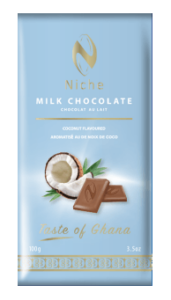 Indeed, last year Niche Cocoa opened a new cocoa processing plant in Franklin, Tennessee, in the States, bringing Ghana cocoa beans to the international market. The plant has been established through a partnership with local company Omanhene Cocoa Bean Co, as well as local government and US federal support, creating the largest food and beverage investment in the USA by an Africa-based company. It was an effort Ashiley was instrumental in carrying out.
Indeed, last year Niche Cocoa opened a new cocoa processing plant in Franklin, Tennessee, in the States, bringing Ghana cocoa beans to the international market. The plant has been established through a partnership with local company Omanhene Cocoa Bean Co, as well as local government and US federal support, creating the largest food and beverage investment in the USA by an Africa-based company. It was an effort Ashiley was instrumental in carrying out.
“We have had demand for cocoa powder and chocolates from the US market,” Ashiley recalls. “After looking at the idea of producing chocolate in Ghana and shipping it to the States, we realised it made more sense to produce chocolates and powder in the States to feed into American markets, building a presence there.”
The new US plant is a modern, highly automated facility using the latest technology, installed and maintained by locally sourced engineers.
“We didn’t want there to be any ambiguity, so we invested in the latest state-of-the-art equipment, producing chocolates in a shorter space of time but of the highest quality,” Ashiley says. “We won’t compromise on anything, and our equipment reflects that.”
But while Niche Cocoa is drawing upon local knowledge for its technological needs in the United States, that knowledge is first and foremost informed by Ghanaian chocolate know-how, with Ghanaian staff being brought over to the new facility to transfer knowledge.
“It might surprise you to learn that the whole local company, with 649 people, is wholly Ghanaian,” Ashiley tells us. “It is one of our touchstones, making sure everything we do is informed by homegrown talent. Even I was trained in Ghana, and I have built 15 factories over my time here.”
Of course, with the amount of investment that goes into the knowledge and training of each member of staff, it is essential that Niche Cocoa can hold onto that talent.
“As a business, we make sure the investment we have made in people stays with us because there is no ‘Cocoa University’,” Ashiley says. “You make sure that the incentives you give to the staff keep them on board, and that the salaries are comparable to whatever’s out there. Our people are getting value for money and see progress in terms of their own careers. I personally started as a maintenance supervisor and worked my way up to becoming a managing director. We strive to make sure that talent is recognised and rewarded.”
Building a Name
Niche Cocoa’s position as an indigenous chocolate producer is its unique selling point, but it also presents the company with unique challenges, particularly as it enters international markets.
“We are the first indigenous company trying to accomplish what we have over the last six to seven years,” Ashiley tells us. “It is a space where we have made our mark by being at the top of our game, and at the pinnacle of what we’re doing.”
Even when it was a relatively small company, from the beginning Niche Cocoa has seen itself as a global brand, and that has guided its decisions and strategy from the outset.
“Having the experience we do, we do not see our size as a disadvantage, instead it has driven us to work harder to achieve our main goal of becoming a global brand. The impetus to succeed has pushed us very hard, and our partners such as cocoa and chocolate equipment manufacturer Royal Duyvis Wiener have been essential to push us to where we are, alongside support from financial institutions like the FMO and Belgian Investment Fund.”
But the global chocolate industry remains a crowded sector, and ultimately it is Niche Cocoa’s proud Ghanaian identity, and its internationally renowned cocoa beans, that will help it to stand out.
“That is why we always have our trump card, that Ghana produces the best cocoa,” Ashiley says. “Our products are made from premium Ghanaian cocoa, with premium chocolatiers. We produce only 100% Ghanaian cocoa, chocolates with the real taste of cocoa.”
It means that Niche Cocoa is operating in a premium market, and it is not just about taste – it is about ethics.
“People buy our chocolate knowing what they are getting it. They can even know which society the beans come from so that customers know that this chocolate has nothing to do with child labour. These are the kind of chocolate we are producing for the international market.”
Talking with Ashiley it is clear that he is excited about the possibilities, but also determined in his ambition.
“We want to make our mark. When you talk about cocoa from Ghana, people mention Niche, when you talk about good chocolate, mention Niche,” Ashiley says.
